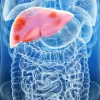How PCOD Influences Skin Health and Complexion
Polycystic Ovary Syndrome (PCOS) is a common endocrine disorder that affects women of reproductive age. It is characterized by hormonal imbalances, irregular menstrual cycles, and the development of small cysts on the ovaries. Beyond its impact on reproductive health, PCOS can also significantly influence skin health and complexion. Understanding the connection between PCOS and skin health is crucial for women dealing with this condition. In this article, we will explore the various ways in which PCOS can influence skin health and complexion and provide insights into managing these effects.
The Impact of PCOS on Skin Health
Hormonal Imbalance and Acne
One of the most noticeable effects of PCOS on the skin is the increased likelihood of developing acne. Hormonal imbalances associated with PCOS, particularly elevated levels of androgens (male hormones), can lead to excessive sebum production, clogged pores, and the development of acne. This can be especially distressing for women who may already be dealing with the challenges of irregular menstrual cycles and fertility issues.
Hirsutism and Unwanted Hair Growth
PCOS can also contribute to the development of hirsutism, a condition characterized by excessive and unwanted hair growth in areas such as the face, chest, and back. This is again linked to the hormonal imbalances that are characteristic of PCOS, particularly the elevated levels of androgens. Dealing with hirsutism can have a significant impact on a woman’s self-esteem and body image, leading to emotional distress and a sense of social discomfort.
Skin Discoloration and Hyperpigmentation
Women with PCOS may also experience skin discoloration and hyperpigmentation, particularly in areas such as the neck, underarms, and inner thighs. This is often associated with insulin resistance, a common feature of PCOS, which can lead to elevated insulin levels in the blood. The resulting increase in melanin production can cause dark patches on the skin, known as acanthosis nigricans, affecting both the appearance and self-confidence of individuals with PCOS.
Hair Loss and Thinning
While it is often overlooked, hair loss and thinning can be a distressing consequence of PCOS for many women. The hormonal imbalances and elevated androgen levels associated with PCOS can lead to hair thinning, particularly at the crown of the head. This can have a significant impact on self-image and emotional well-being, adding to the already complex challenges of living with PCOS.
Managing Skin Health with PCOS
Holistic Skincare Approach
Given the diverse impact of PCOS on skin health, a holistic approach to skincare is essential. This includes adopting a gentle cleansing routine, using non-comedogenic products to prevent acne, and incorporating targeted treatments for acne and hyperpigmentation. Additionally, regular exfoliation and moisturization can help maintain skin health and reduce the visibility of skin discoloration.
Medical Intervention
For individuals experiencing severe acne, hirsutism, or hair loss as a result of PCOS, medical intervention may be necessary. This can include prescription medications to manage acne, laser hair removal for hirsutism, and topical or oral treatments to address hair thinning. Consulting with a dermatologist or endocrinologist can provide personalized solutions to manage these skin-related symptoms of PCOS.
Lifestyle Modifications
Lifestyle modifications, including dietary changes and regular physical activity, can play a crucial role in managing the skin-related effects of PCOS. Adopting a low glycemic index diet, rich in whole foods and nutrients, can help regulate insulin levels and mitigate the impact of insulin resistance on skin health. Similarly, participating in regular exercise can contribute to hormonal balance and overall well-being.
Psychological Support
Recognizing the emotional impact of PCOS on skin health and complexion, it is important to seek psychological support when needed. Dealing with skin-related symptoms can affect self-esteem and confidence, and seeking counseling or support groups can provide valuable emotional support for individuals navigating these challenges.
Introducing Fitpaa: Your Path to Holistic Wellness
While managing the effects of PCOS on skin health is a multifaceted journey, technology and support systems can play a pivotal role in this process. Fitpaa, an end-to-end AI-driven metabolism monitoring and management technology, offers a comprehensive solution to individuals aiming to achieve their health and fitness goals, including managing the impact of PCOS on skin health.
Personalized Metabolism Assessment
Fitpaa begins by conducting a thorough metabolism assessment, considering the individual’s unique hormonal profile, lifestyle, and dietary habits. This personalized approach allows for a comprehensive understanding of the metabolic factors contributing to skin-related symptoms of PCOS.
Tailored Fitpaa Capsule
Following the metabolism assessment, Fitpaa prepares a personalized Fitpaa Capsule, integrating medical therapy, exercise therapy, nutrition therapy, and cognitive behavior therapy. This holistic approach not only targets overall health and fitness goals but also addresses the specific skin-related concerns associated with PCOS.
Real-time Guidance and Support
Fitpaa’s real-time guidance technology incorporates cognitive behavioral therapy principles, providing timely nudges, habit-building support, and purpose-driven motivation. This not only aids in adherence to the personalized wellness plan but also contributes to emotional well-being, crucial for individuals managing the emotional impact of PCOS on skin health.
Comprehensive Health and Wellness Support
Fitpaa offers a complete suite of tools, including a virtual workout trainer, diet tracker, performance tracking, and progress monitoring, to support individuals in achieving their health and wellness goals. This integrated approach ensures that users have access to the resources and support necessary to manage the skin-related effects of PCOS.
In conclusion, PCOS can exert a significant influence on skin health and complexion, presenting challenges that extend beyond reproductive and hormonal imbalances. By adopting a holistic approach to skincare, seeking medical and lifestyle interventions, and leveraging supportive technologies like Fitpaa, individuals with PCOS can navigate these challenges with confidence and proactive management.
If you are ready to embark on a journey towards holistic wellness and address the impact of PCOS on your skin health, the Fitpaa app is here to support you. Download Fitpaa today and take the first step towards achieving your health and wellness goals with personalized, guaranteed results.
Remember, you are not alone in this journey, and with the right support and resources, you can overcome the challenges of PCOS and embrace a life of holistic wellness and vitality.









